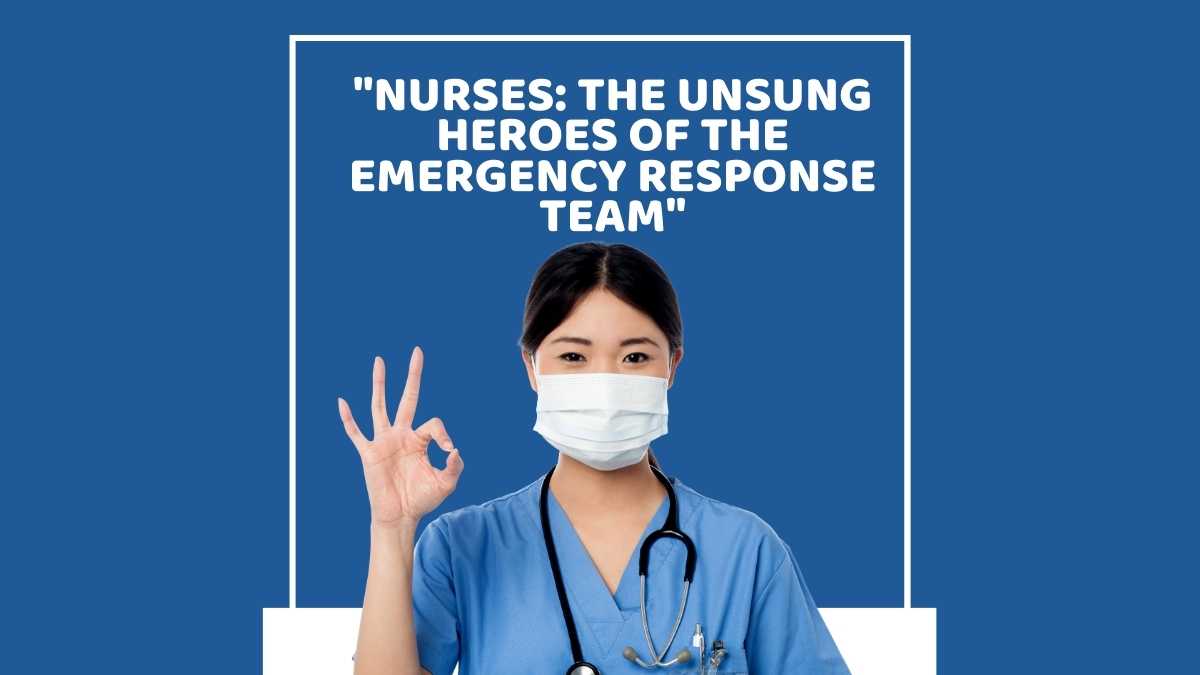The Unsung Heroes of the Emergency Response Team
Nurses play a vital role in the healthcare system, and their work often goes unnoticed. However, in times of emergency and crisis, nurses step up to the plate and become first responders, providing critical care and assistance to those in need. In this article, we’ll explore the role of nurses as first responders, including their training and responsibilities, as well as how they help to save lives in emergency situations.
What is a first responder?
A first responder is a trained professional who is the first to arrive on the scene of an emergency. They provide immediate assistance and care to those in need, and are often the first line of defense in a crisis. First responders can include paramedics, firefighters, and police officers, as well as nurses.
How are nurses trained to be first responders?
Nurses are trained to be first responders through a variety of educational programs and certifications. Many nurses begin their training by obtaining a degree in nursing, and then go on to specialize in areas such as emergency nursing or critical care. They also receive training in emergency response protocols, such as basic life support and advanced cardiac life support. Additionally, nurses may also complete additional training and certifications in areas such as disaster response, triage, and mass casualty management.
What are the responsibilities of nurses as first responders?
Nurses play a critical role in emergency response teams, and their responsibilities vary depending on the situation. In general, nurses are responsible for providing immediate medical care and assistance to those in need. This can include administering first aid, performing basic life support, and stabilizing patients for transport to a hospital. Nurses may also be responsible for triage, which involves evaluating patients and prioritizing their care based on the severity of their condition. Additionally, nurses may be called upon to assist with mass casualty incidents, such as natural disasters or terrorist attacks, and may be responsible for managing and coordinating the care of multiple patients at once.
How do nurses help save lives in emergency situations?
Nurses play a critical role in saving lives in emergency situations. Their training and expertise allow them to quickly and effectively assess patients, provide life-saving care, and stabilize patients for transport to a hospital. Additionally, nurses are often the first line of defense in a crisis, and their actions can make the difference between life and death for patients. For example, a nurse trained in advanced cardiac life support may be able to revive a patient who has experienced cardiac arrest, while a nurse trained in triage may be able to quickly identify and prioritize the care of patients with the most critical needs.
Are nurses considered first responders?
Yes, nurses are considered first responders and play a critical role in the emergency response team.
What kind of training do nurses receive to be first responders?
Nurses receive a variety of training to be first responders, including a degree in nursing, specialization in areas such as emergency nursing or critical care, and training in emergency response protocols such as basic life support and advanced cardiac life support.
What are the responsibilities of nurses as first responders?
The responsibilities of nurses as first responders include providing immediate medical care and assistance, administering first aid, performing basic life support, stabilizing patients for transport to a hospital, and assisting with mass casualty incidents.
How do nurses help save lives in emergency situations?
Nurses help save lives in emergency situations by quickly and effectively assessing patients, providing life-saving care, and stabilizing patients for transport to a hospital.
